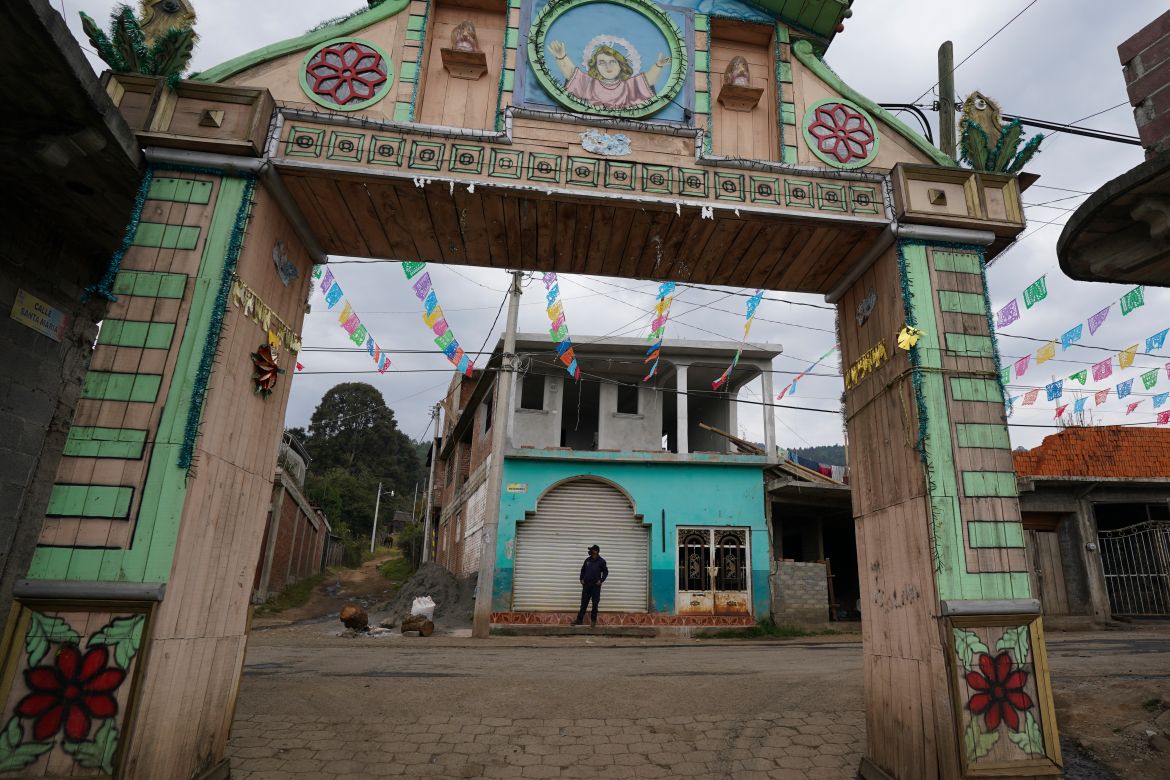In Pictures
In Pictures: The Indigenous town in Mexico living on remittances
Money sent home by migrant workers in the United States has allowed their families to remain in Comachuen.

There are about 10,000 people living in Comachuen, a Purepecha Indigenous community nestled high in the pine-clad mountains of Mexico’s western state of Michoacan.
The town has largely been relying on the money sent home by migrants working in the neighbouring United States following the drop in local woodworking sales some 10 years ago when pine lumber started to become scarce.
These remittances have allowed their families to remain in Comachuen rather than moving to other parts of Mexico for work. That – and the fact children spend much of the year with their mothers and grandparents – has helped preserve the Purepecha language among almost everyone in town.
The traditional textiles, woodworking and construction live on, largely because such enterprises are funded by remittances sent home to build houses. Many things in the town – the church, the bull ring, the charity donations – are paid for with remittances.
The Mexican government estimates remittances sent last year will surpass $50bn for the first time. But whether the remittances allow families to just survive or progress enough so their children will not have to emigrate varies, reflecting a person’s plans and outlook.
Last week, the migrant workers were back in town because of the seasonal lull in agricultural work in the US.
Many workers from Comachuen get H2A temporary US work visas, while others go without documents. Hundreds of men from the town work at the same vegetable farm in upstate New York every year, planting onions, harvesting squash, cabbage and beans. Porfirio Gabriel, an organiser who recruits workers to go north, estimates that one farm alone has brought $5m into the town over three years, by far its largest single source of income.










